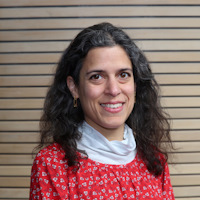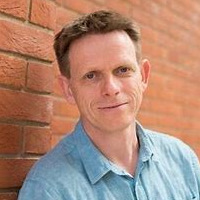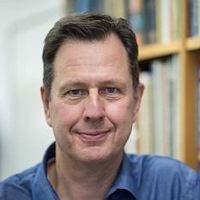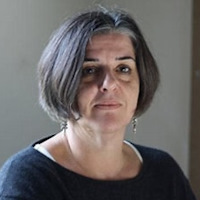Events
English Grammar Day 2024

Date: Friday 28 June, 2024
Location: The Knowledge Centre, The British Library, Euston Road, Central London. Map Directions
Book: Book Tickets £15 (£10 concessions)
A day of talks and discussion on aspects of English grammar
Are you sat down or sitting down while reading this? Have you got or do you have a preference for one form over the other? English has a number of ways of expressing the same concept, and with approximately 400 million mother-tongue speakers and an estimated 1400 million non-native speakers it has become a diverse, flexible language that continues to adapt, evolve – and provoke strong reactions. You only need to search for #grammar on Twitter to see what we mean!
Developments in the National Curriculum for England have placed grammar in schools at centre stage once more, and divided opinion among politicians, teachers, linguists and journalists, as well as the wider public, on how and whether it should be taught. How have teachers implemented changes to their teaching and learning programmes to adapt to the new syllabuses, assessment criteria and tests? What resources are available for students, teachers and the general public to learn more about English grammar, and how reliable are they? What is or should be the role of English grammar teaching in schools today and why is this so controversial? What do teachers, professionals, academics and the general public feel is the cultural and educational significance of knowledge about the language?
 Join us at the British Library for a day of talks and discussion, and feel free
to ask our panel of experts to explore any aspect of English grammar
from ain’t to innit.
Join us at the British Library for a day of talks and discussion, and feel free
to ask our panel of experts to explore any aspect of English grammar
from ain’t to innit.
Presented by University College London, the British Library and the University of Oxford.
Programme
| 09:15-09:45 | Registration | |
| 09:50-10:00 | Welcome & Introduction | |
| 10:00-10:30 | Shahan Choudhury, Anglia Ruskin University Exploring children’s and teachers’ metalinguistic thinking about perfect and progressive categories of the verb | |
| 10:30-11:00 | Bas Aarts and Luke Pearce, University College London Ten years on: grammar, spelling and punctuation in the National Curriculum | |
| 11:00-11:45 | Coffee* | |
| 11:45-12:15 | Jonnie Robinson, British Library Stokesy ct. Foakesy b. Woakesy. The grammar of nicknames in sport | |
| 12:15-12:45 | Devyani Sharma, Queen Mary University of London Changing London grammar | |
| 12:45-14:00 | Lunch break* | |
| 14:00-14:30 | Deborah Cameron, University of Oxford Grammar, the media and the reporting of violence against women | |
| 14:30-15:00 | Jennifer Webb, English Teacher and creator of Funky Pedagogy Grammar: possibility, craft and agency in the classroom | |
| 15:00-15:45 | Tea* | |
| 15:45-17:00 | ‘Any Questions’-style panel discussion, chaired by John Mullan, UCL | |
*Coffee/tea is included but lunch is not provided: there are numerous food outlets at the British Library and within a short walking distance nearby.







This is what some participants said about last year's event.
Timetable tbc
Event details
| Where: | The Piggot Theatre | |
The British Library For directions see below Tickets: £15 (£10 concessions) |
||
| When: | Friday 28 June 2023, 09:30-17:00 |
How to find the venue
- The British Library is adjacent to St Pancras Railway Station on Euston Road in Camden, Central London.
- The nearest tube station is Kings Cross/St Pancras, and the Library is a short walk from Euston. Multiple buses alight or terminate nearby, by the Kings Cross forecourt.
- After entering the British Library forecourt, the Knowledge Centre is in the building to your right closest to St Pancras. Enter the building and go up the stairs.
Abstracts
Shahan Choudhury (Anglia Ruskin University), Exploring children’s and teachers’ metalinguistic thinking about perfect and progressive categories of the verb
There has been much controversy over whether grammar should be taught, however, how it is learnt has received little attention. The grammar component of the English National Curriculum covers some important concepts, including various grammatical patterns about verbs. What are the semantic meaning differences between: ‘Muhammad has eaten’, ‘Muhammad is eating’ and ‘Muhammad ate’? The study used grammar exercises and narrative writing samples as well as interviews. The purpose of the interviews were to explore their understanding and explanations of grammatical features required by the English National Curriculum by asking various questions, such as: ‘Can children and teachers explain the difference between various grammatical patterns?’ Using empirical data from teachers and children in English schools, this talk discusses how grammatical patterns are understood, revealing some of the structural and semantic features that were taken into consideration. The research draws out connections between what children think and what teachers have taught them, and it indicates some conceptual patterns that children and teachers had developed when explaining perfect and/or progressive verbs.
Devyani Sharma (Queen Mary University of London), Changing London grammar
How is grammar changing in London today? Are the seeds of tomorrow's standard grammar visible in the vernacular of today? Our new project Generations of London English is tracking the changing language in real time, across speakers of different varieties of London English, with a focus on East and South London. This includes speech from teenagers and adults at different time points, re-interviewed participants from earlier Multicultural London English projects, and longitudinal tracking of children from their first year in school. This talk presents preliminary observations of grammatical change in London dialect, including features that are expanding or receding, the rule-governed nature of novel forms in vernacular syntax, and possible reasons for these cycles of change in language.
Jonnie Robinson (British Library), Stokesy ct. Foakesy b. Woakesy. The grammar of nicknames in sport
Using a dataset of nicknames of elite athletes he has compiled from the mainstream British sporting press and media, Jonnie will explore grammatical patterns in the way we create ‘transparent’ nicknames.
Bas Aarts and Luke Pearce (University College London), Ten years on: grammar, spelling and punctuation in the National Curriculum
Ten years after the launch of the National Curriculum for English in 2014, which included teaching specifications for grammar, punctuation and spelling and tests at Key Stages 1 and 2, we asked the teaching community what their experiences have been teaching the curriculum and whether they think it has made a difference to their pupils’ literacy skills. We present the results of our survey.
Deborah Cameron (Oxford University), Grammar, the media and the reporting of violence against women
The way the news media report violence against women — crimes like rape, domestic homicide and the sexual exploitation of girls — has a profound influence on the way it is understood by the public at large, and it’s been argued that the language of news reporting both reflects and reinforces common myths and biases. Discussions of this often focus on the words reporters use, but in this talk I’ll consider the role played by grammar. Grammatical patterns may be less obvious to the average person, but they are no less important in shaping our perceptions.
Jennifer Webb (English Teacher and creator of Funky Pedagogy), Grammar: possibility, craft and agency in the classroom
This talk will challenge the perception of grammar education as a dry, irrelevant form of torture, and reclaim it as an empowering source of knowledge which fuels art and advocacy. Jenny will talk about language awareness in the English classroom, and the ways in which educators and students can use grammar to develop voice, confidence and enjoyment of language.
Speaker biographies
 Shahan Choudhury
Shahan Choudhury
Shahan Choudhury is a lecturer at Anglia Ruskin University, teaching Research Methods and Academic English. His research specialism is in language and literacy. Under the supervision of Professor Debra Myhill, his PhD investigated children’s and teachers’ metalinguistic understanding of verb, tense, aspect, modality and passive in English schools. His talk at the English Grammar Day will focus on one area, grammatical aspect. As a former school teacher, he was fascinated by the role of research in understanding ‘good practice’ in education, especially after embarking on learning Arabic as a foreign language during early 2000’s – this formed a significant step in him realising the power of language.
 Devyani Sharma
Devyani Sharma
Devyani is Professor of Linguistics at Queen Mary University of London. Her research is on the social and cognitive systems underpinning new English dialects, language contact, bilingualism, accent variation, and language change. Her current ESRC-funded project, Generations of London English, looks at language change in real time over generations of Londoners. Her recent books include From Deficit to Dialect: The Evolution of English in India and Singapore, The Oxford Handbook of World Englishes and Research Methods in Linguistics. She leads the public initiatives Accent Bias Britain and Teach Real English!.
 Jonnie Robinson
Jonnie Robinson
Jonnie is Lead Curator of Spoken English at the British Library and responsible for the Library’s extensive archive of sound recordings of British accents and dialects. As a dialectologist, Jonnie has worked extensively with audio data deriving from two nationwide surveys of regional speech, the Survey of English Dialects and BBC Voices, and in 2010 co-curated the world’s first major exhibition on the English Language, Evolving English: One Language, Many Voices. As a sports enthusiast, he collects examples of vernacular English from the mainstream sporting press, broadcast and social media.
 Bas Aarts
Bas Aarts
Bas is Professor of English Linguistics and Director of the Survey of English Usage at University College London. He directs the Englicious project at UCL with free resources for teachers of English (englicious.org). He has published widely on English grammar.
 Luke Pearce
Luke Pearce
Luke is an English Teacher and works on the Englicious project at the Survey of English Usage, UCL.
 Deborah Cameron
Deborah Cameron
Deborah is Professor Emerita of Language and Communication at the University of Oxford: she’s also a blogger, occasional broadcaster and sometime stand-up comedian. Her talk for English Grammar Day draws on her most recent book, Language, Sexism and Misogyny (Routledge, 2023).
 Jennifer Webb
Jennifer Webb
Jennifer is a teacher and Director of English and Literacy for the Carlton Academy Trust in West Yorkshire, where she supports a number of secondary schools. She hosts www.FunkyPedagogy.com —- a site where she has built an extensive CPD library for English teachers and school leaders, whilst also freely sharing resources and articles rooted in her own classroom practice. She also curates ‘The Reading List Project’ as a vehicle for diversifying school libraries and English curriculum choices, and is the founder of The Literacy Community, a national grassroots collaborative project with over 800 literacy leaders in schools. She is the best-selling author of How to Teach English Literature: Overcoming Cultural Poverty (2019), Teach Like a Writer (2020) and The Metacognition Handbook (2021) and Essential Grammar (2023), co-authored with Marcello Giovanelli.
This page last modified 20 September, 2022 by Survey Web Administrator.